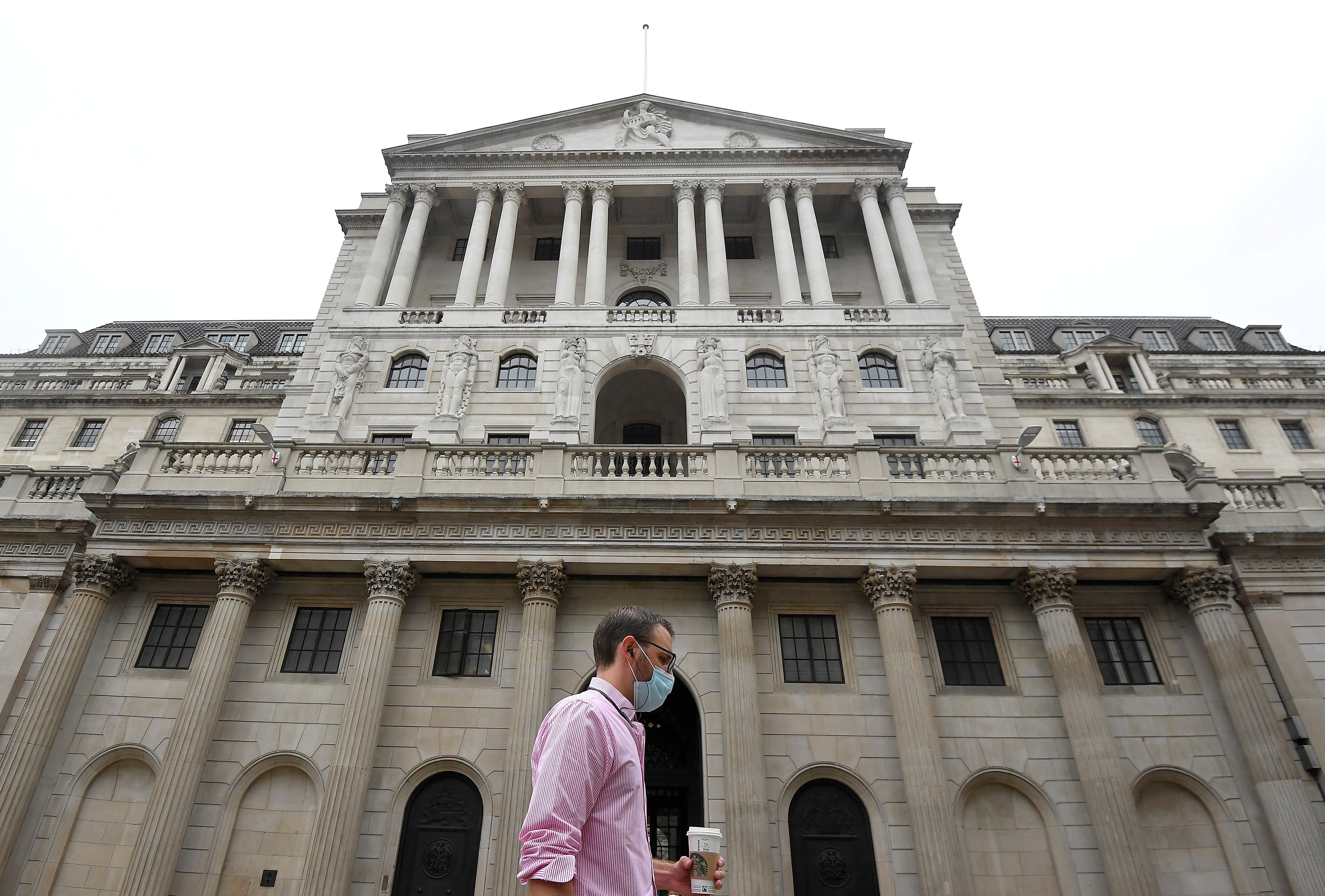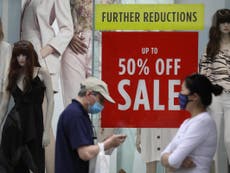Bank of England keeps interest rates on hold at record low of 0.1 per cent
UK economic outlook remains ‘unusually uncertain’ but payments data indicates recovery may be stronger than forecast

Your support helps us to tell the story
From reproductive rights to climate change to Big Tech, The Independent is on the ground when the story is developing. Whether it's investigating the financials of Elon Musk's pro-Trump PAC or producing our latest documentary, 'The A Word', which shines a light on the American women fighting for reproductive rights, we know how important it is to parse out the facts from the messaging.
At such a critical moment in US history, we need reporters on the ground. Your donation allows us to keep sending journalists to speak to both sides of the story.
The Independent is trusted by Americans across the entire political spectrum. And unlike many other quality news outlets, we choose not to lock Americans out of our reporting and analysis with paywalls. We believe quality journalism should be available to everyone, paid for by those who can afford it.
Your support makes all the difference.The Bank of England has kept interest rates on hold at a record low of 0.1 per cent as the UK economy emerges slowly from its sharpest contraction on record.
The Bank’s Monetary Policy Committee (MPC) also voted unanimously to keep its quantitative easing programme on hold at £745bn.
Analysts had predicted that the Bank would hold off making any changes to its economic stimulus measures until later in the year when the impact of coronavirus on jobs and businesses was more fully understood.
In its latest report, the MPC warned that the UK faced a period of persistent, higher unemployment while the economic outlook remained “unusually uncertain”.
The report highlighted payments data indicating the recovery was stronger than had been forecast last month. Consumer spending – a key driver of the wider economy – has risen to around the same level as the start of 2020, the MPC said.
However, its forecasts for future growth remained contingent on the assumption that Covid-19’s economic impact “dissipates gradually” and Brexit trade deal talks result in a comprehensive free trade agreement with the EU before the end of this year.
With new local lockdowns coming into force this week and negotiations with the EU looking increasingly strained, both assumptions appear less certain than they did a month ago.
The MPC wrote: “The recent increases in Covid-19 cases in some parts of the world, including the United Kingdom, have the potential to weigh further on economic activity, albeit probably on a lesser scale than seen earlier in the year.”
The Bank’s announcement came after the US central bank said on Wednesday that it would keep rates at record lows until at least 2023 to help boost America’s economy.
Adam Cole, of RBC Capital Markets, said he expected the Bank of England to make further announcements to support the recovery in the autumn or winter.
“The initial recovery from the lows of the spring lockdown looks to be strong with consumer spending bouncing back particularly quickly but the outlook beyond this initial phase remains shrouded in uncertainty,” he said.
Low rates, and the expectation of more stimulus later in the year, mean mortgage borrowers are likely to continue to find cheap deals available for some time.
Meanwhile, unemployment is expected to rise sharply in the coming weeks as companies face a cliff edge once the furlough scheme ends on 31 October.
The official unemployment rate edged up to 4.1 per cent between May and July but redundancies began to rise sharply in the final weeks of the quarter, official figures showed this week.
Vivek Paul, UK chief investment strategist at BlackRock Investment Institute, said the Bank was right to sound a cautious tone.
“There are clouds on the horizon. The headline unemployment statistics released earlier this week don’t tell the full story, as underscored by recent headlines around a number of UK firms considering redundancies.
“We would expect the UK’s headline unemployment figure to rise materially through Q4 as the end of the furlough scheme allows the full impact of the crisis to filter through.”
Bank of England governor Andrew Bailey was forced to write a letter to the chancellor after inflation dropped further below its target rate of 2 per cent.
Prices of a number of goods and services began to fall in August, taking the annual inflation rate down to just 0.2 per cent from 1 per cent in July.
Much of the reduction was due to falling restaurant prices thanks to the government’s Eat Out to Help Out scheme and a reduction in VAT for hospitality businesses.




Join our commenting forum
Join thought-provoking conversations, follow other Independent readers and see their replies
Comments